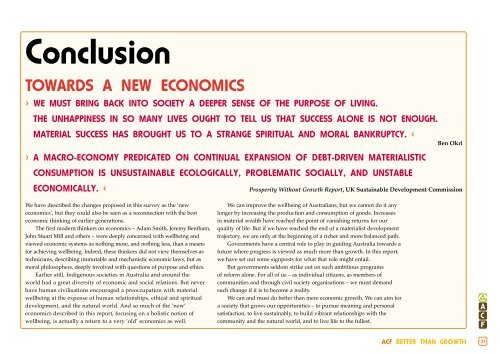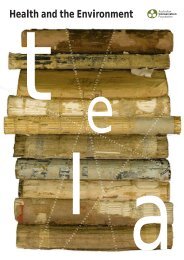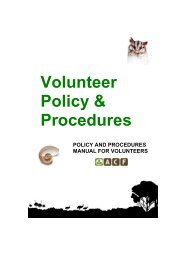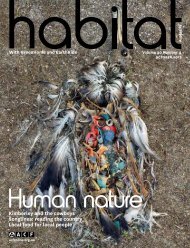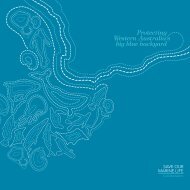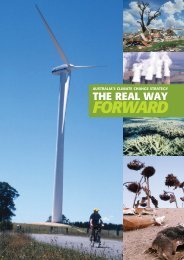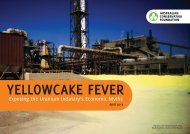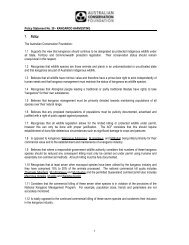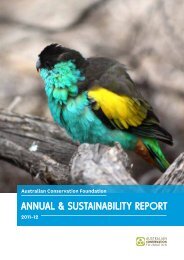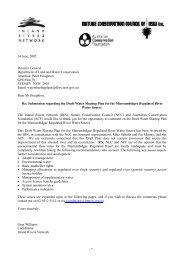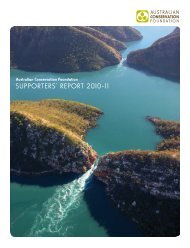Better than growth - Australian Conservation Foundation
Better than growth - Australian Conservation Foundation
Better than growth - Australian Conservation Foundation
Create successful ePaper yourself
Turn your PDF publications into a flip-book with our unique Google optimized e-Paper software.
Conclusion<br />
towards a new economics<br />
› We must bring back into society a deeper sense of the purpose of living.<br />
The unhappiness in so many lives ought to tell us that success alone is not enough.<br />
<br />
Material success has brought us to a strange spiritual and moral bankruptcy. ‹<br />
› A macro-economy predicated on continual expansion of debt-driven materialistic<br />
consumption is unsustainable ecologically, problematic socially, and unstable<br />
Ben Okri<br />
economically. ‹<br />
We have described the changes proposed in this survey as the ‘new<br />
economics’, but they could also be seen as a reconnection with the best<br />
economic thinking of earlier generations.<br />
The first modern thinkers on economics – Adam Smith, Jeremy Bentham,<br />
John Stuart Mill and others – were deeply concerned with wellbeing and<br />
viewed economic systems as nothing more, and nothing less, <strong>than</strong> a means<br />
for achieving wellbeing. Indeed, these thinkers did not view themselves as<br />
technicians, describing immutable and mechanistic economic laws, but as<br />
moral philosophers, deeply involved with questions of purpose and ethics.<br />
Earlier still, Indigenous societies in Australia and around the<br />
world had a great diversity of economic and social relations. But never<br />
have human civilisations encouraged a preoccupation with material<br />
wellbeing at the expense of human relationships, ethical and spiritual<br />
development, and the natural world. And so much of the ‘new’<br />
economics described in this report, focusing on a holistic notion of<br />
wellbeing, is actually a return to a very ‘old’ economics as well.<br />
Prosperity Without Growth Report, UK Sustainable Development Commission<br />
We can improve the wellbeing of <strong>Australian</strong>s, but we cannot do it any<br />
longer by increasing the production and consumption of goods. Increases<br />
in material wealth have reached the point of vanishing returns for our<br />
quality of life. But if we have reached the end of a materialist development<br />
trajectory, we are only at the beginning of a richer and more balanced path.<br />
Governments have a central role to play in guiding Australia towards a<br />
future where progress is viewed as much more <strong>than</strong> <strong>growth</strong>. In this report,<br />
we have set out some signposts for what that role might entail.<br />
But governments seldom strike out on such ambitious programs<br />
of reform alone. For all of us – as individual citizens, as members of<br />
communities and through civil society organisations – we must demand<br />
such change if it is to become a reality.<br />
We can and must do better <strong>than</strong> mere economic <strong>growth</strong>. We can aim for<br />
a society that grows our opportunities – to pursue meaning and personal<br />
satisfaction, to live sustainably, to build vibrant relationships with the<br />
community and the natural world, and to live life to the fullest.<br />
ACF BETTER THAN GROWTH 37


